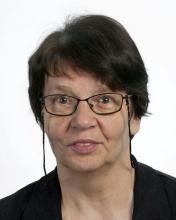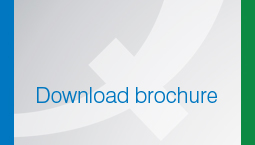Anne Villems

ABOUT THE PRESENTATION
Quality assessment e-learning courses as benchmarking in higher education
E-learning is an area where quality of both, learning materials and learning process organisation (e.i. learning activities) has probably more important role than in the traditional learning process, where hundreds years old practice helps not only teachers but also students to succeed. As e-learning tools and environments are developing very fast, then it happens, that students and teachers are using new tools first or second time. In those circumstances quality framework of the course helps teachers to see the main goals of the course and not to get stuck in (new) technical issues.
In 1999, Estonian universities had only 14 e-learning courses, but with twelve years this number has increased to more than 10000. This rapid growth has led to the need to actively disseminate "best practices" among the course designers.
The first step was creating the guiding materials for teachers, lecturers and educationial technologist to support design and development of e-courses. In 2008 the first version of the “Quality Manual for E-learning in Higher Education” was published and in the same autumn was initiated the process of awarding the e-course quality label in Estonia. The Manual is a step by step guide on how to create your first e-course or improve existing and operational ones. Essential quality criteria are indicated at the end of each chapter of the manual which have to be met in order to the e-course and its instructional process to be recognised of fulfilling defined requirements.
In addition to the manual are set up the quality label process to evaluate the e-courses. Approximately 50 e-courses have participated in the application process each year.
The process, beginning with self-evaluation, followed by organisation evaluation containing also learners’ feedback and 3-member team expert evaluation. In 2011 the e-learning quality web was created. It is a database supported special web-based software supporting all 3 tiers of the process.
In this paper we will look into the innovation of teaching and learning of the Estonian universities and vocational education institutions giving an overview how the system for quality assurance in e-learning supports innovation.
Every spring, during the national e-learning conference, results of the quality label acquisition process is announced and authors of the courses with new quality labels are presenting their courses during the special session. On this session everybody can get an overview of best courses.
The whole process of the e-learning quality process help to benchmark the e-courses and through this process designers of courses can acquire new ideas how to enhance their courses.
ABOUT THE SPEAKER
Anne Villems is a lecturer in the Computer Science Department, at University of Tartu, Estonia. She is active in e-learning from 1997 and member of the e-Learning Quality Assurance Task Force of the Innovation Centre for Digital Education in The Information Technology Foundation for Education from the birth of this task force on 2007. Her interests lay the field of ICT usage in education and innovation process management in educational institutions.
